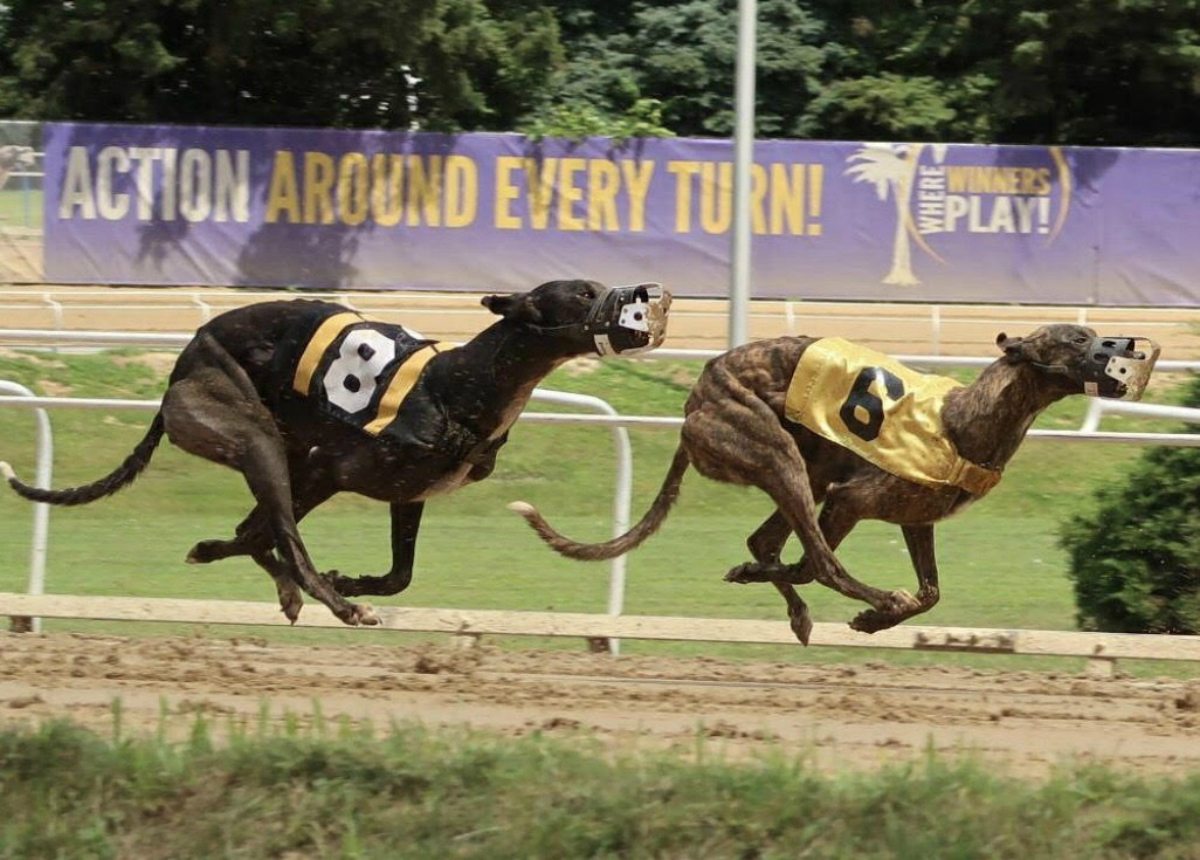A poll in West Virginia has concluded that the majority of residents are opposed to earmarking casino tax money for state greyhound breeders.

A controversial poll claims West Virginia residents don’t want casino taxes going to greyhound breeders. (Image: Watch and Wager)
West Virginia’s Racetrack Video Lottery Act of 1994 licensed slot machines and table games at the state’s four racetracks. The two greyhound facilities – Mardi Gras Casino in Cross Lanes and Wheeling Island Hotel Casino Racetrack – are both required under the law to set aside 1.5 percent of their gross gaming revenue generated by their slot machines for the West Virginia Greyhound Breeding Development Fund.
The fund has collected between $13 million and $15 million a year. A new study finds the majority of citizens want that to end.
Fifty-seven percent of respondents said they “strongly oppose” the question: “Do you generally support or oppose the state government spending between $13 million and $15 million a year in gambling revenue to subsidize commercial greyhound breeding for racing at two casinos in West Virginia?”
An additional 22 percent said they “somewhat oppose” the question. Just 10 percent said they “somewhat support,” and six percent “strongly support” the distribution of the casino tax money.
Poll Criticized
The greyhound racing casino poll was commissioned by Grey2K USA Worldwide, a group that opposes dog racing. West Virginia Majority Whip Ryan Weld (D-Brooke) said the study was misleading, as the state isn’t actually spending its own money to support the greyhound breeders.
If you ask any question in that form, you would expect people would say we shouldn’t give them a subsidy,” Weld told The Intelligencer. “But we’re not talking about a subsidy. That’s a misnomer.”
“The casino just has to send the money to the state before it comes back to the track,” Weld explained. Grey2K Executive Director Carey Theil defended the use of the word “subsidy,” saying the very definition is “a sum of money granted by the government or a public body to assist an industry or business.”
There is an appetite to stop funding those invested in greyhound racing. In 2017, the West Virginia Legislature passed a measure to remove the 1.5 percent GGR tax earmark, but Gov. Jim Justice (R) vetoed the bill.
Justice’s family owns The Greenbrier – the state’s lone non-racetrack casino that is only accessible to resort guests and Greenbrier members.
Greyhound Racing’s Closing Stretch?
A year ago this month, Florida voters overwhelmingly approved a state constitutional amendment to phase out dog racing by January 2021. The vote, however, remains the subject of a federal lawsuit.
Greyhound racing is also poised for termination in Arkansas. Southland Casino Racing has been home to greyhound races since 1956, but that will end by December 31, 2022.
Arkansas voters legalized commercial gambling in November 2018. The vote gave permission to Southland and the thoroughbred racino Oaklawn to transition into full-fledged casinos with slot machines and table games.
Southland petitioned the Arkansas Racing Commission to end greyhound racing, and the state agency approved the request on condition that all of the dogs be adopted. Live racing was a previous mandate for the facility to house electronic gaming machines.


